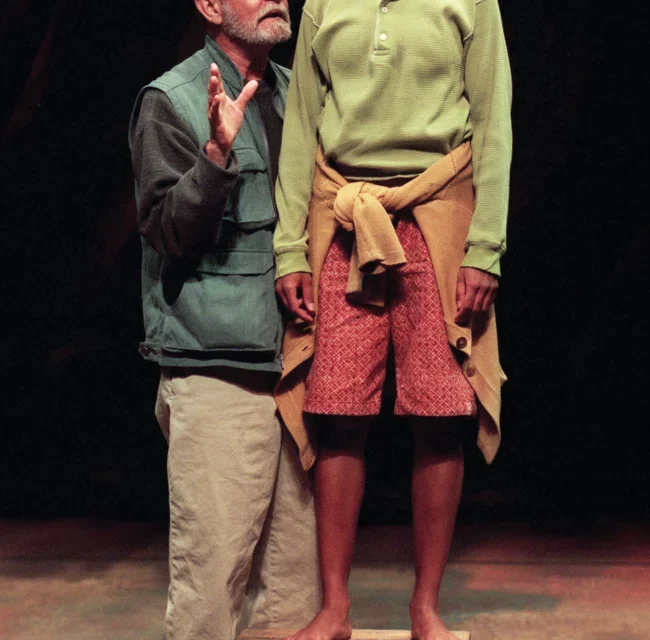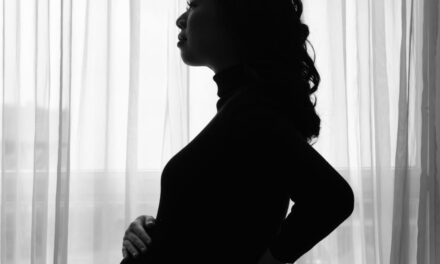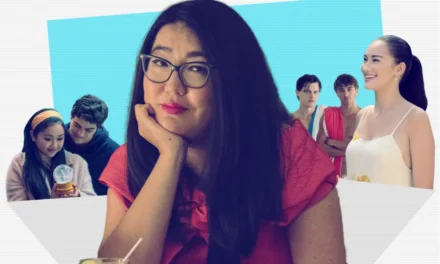Film and television portrayals of older women, especially women of color, are limited in number and scope.
A 2019 study by the Geena Davis Institute on Gender in Media found that nearly three-quarters of on-screen characters over the age of 50 are men. When older women are cast, they are more likely than their male counterparts to play roles that are “senile,” “homebound,” “feeble,” or “frumpy.” Further, older characters are less racially diverse than younger characters. Veteran actor and Peabody Award–winner LisaGay Hamilton, known for her roles on-screen (The Practice) and onstage (Beloved), has firsthand experience with such biases and shared her thoughts with YES!
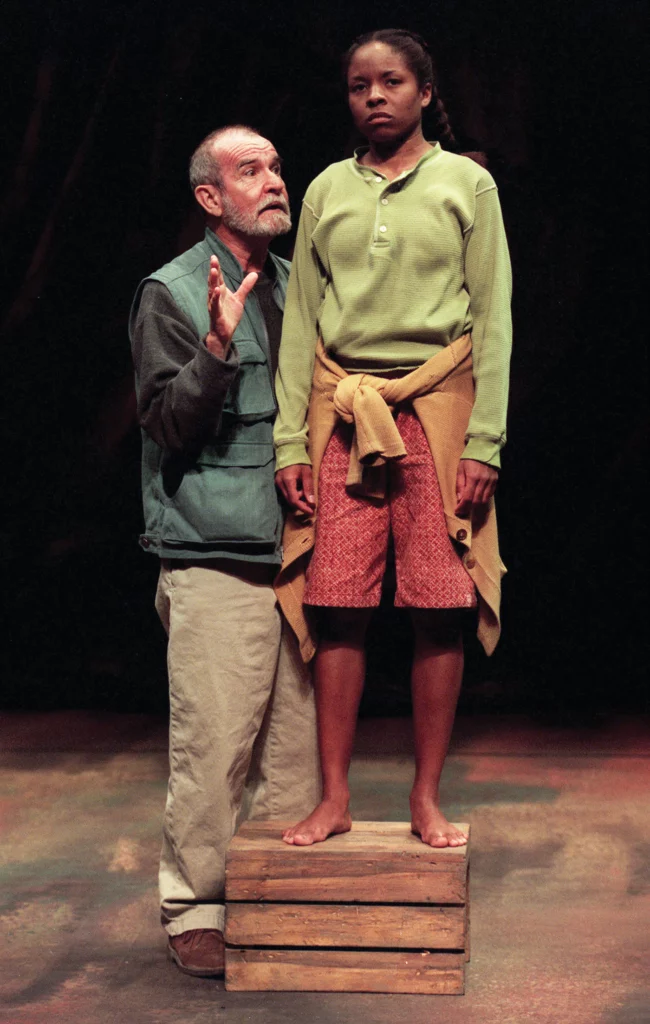
Sonali Kolhatkar: You’ve been in this industry for a long time. How have opportunities changed for you over the decades?
LisaGay Hamilton: I’ve been in the business a long time, and I’ve been fortunate enough to fluctuate from theater and film to television, with theater being the place I love most. I still find theater as the place where I grow the most as an artist because the roles are much fuller, more interesting, more challenging, and they give me the opportunity to tell a much deeper story than just film and television.
As a Black actor, I’m usually offered roles that are still the asexual, generic best friend, sergeant, detective. On the one hand you say, I’m gonna take that job because it pays the bills. On the other hand, you’re forced to go into work maybe three times an episode and do some exposition and leave, which is disheartening and sad and challenging.
Kolhatkar: As you’ve gotten older, do you think the roles are less central and less well-rounded?
Hamilton: As I’ve gotten older, the roles have gotten even more generic. Of course I’m playing the mom and the grandma now; they’re not central to the storyline. I can’t say that the roles are interesting or challenging or even full-blown characters.
Women in general, regardless of race, don’t have the luxury of aging gracefully as far as the executives are concerned. Although there have been some movies of late where they’ve proven that women directors, cinematographers, and stars of a broad range can make money, the bottom line is: Can I make money off of this person?
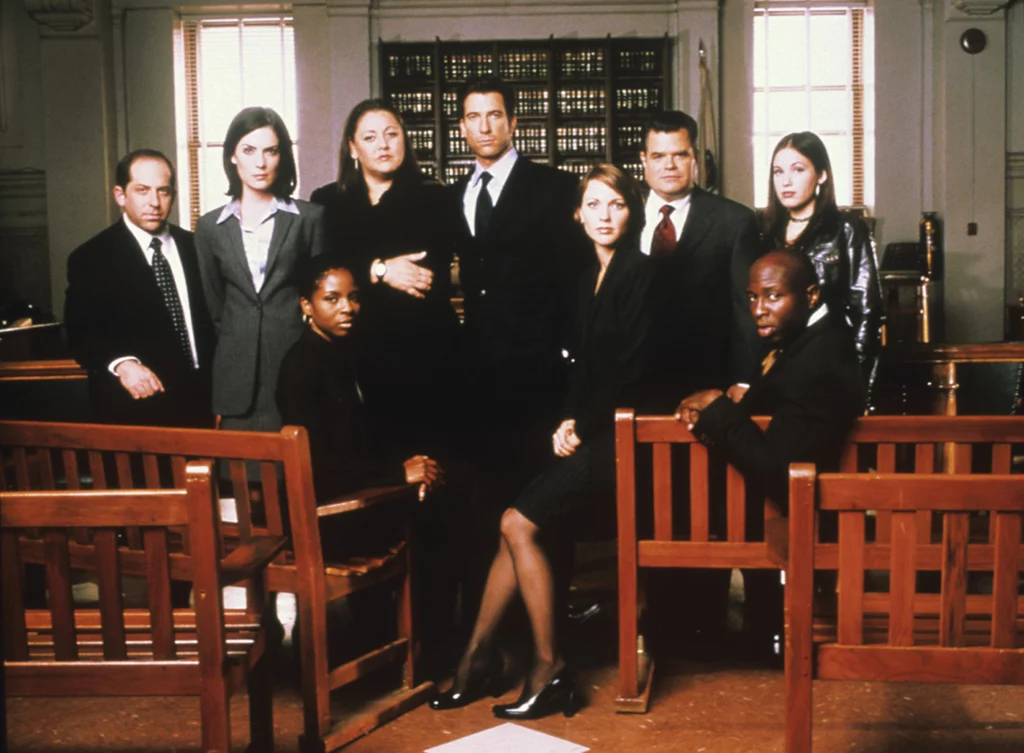
Kolhatkar: In recent years, we’ve had some game-changing projects, like Grace and Frankie on Netflix. Jane Fonda, who played Grace, and Lily Tomlin, who played Frankie, tackled not only the challenges of women aging, but also being single and exploring sexuality as you age. Good Luck to You, Leo Grande with Emma Thompson explored the sexual life of an older woman. Emma Thompson, Jane Fonda, and Lily Tomlin are incredible actresses. They’re all white.
Hamilton: I haven’t been offered those opportunities. You’re naming roles and projects that star white women, which is good for them and good that they’re tackling topics that are closer to my age range. But that doesn’t mean that I get those opportunities because I’m a Black woman.
It’s all about the green, so if a project were to come through that hit all those right markers [and had] women of color in it, then perhaps it might get approved. I’m not the most optimistic human on the planet, so I’m not quite sure what would make that change happen. I’ve done my share of pitching semi-autobiographical projects for myself, and no one’s interested, primarily because I’m not a celebrity. It’s just really hard.
Kolhatkar: If you could envision the broad outlines of your ideal role on television, what would they be?
Hamilton: I love roles that have a social impact and that allow the character to be a reflection of the politics of today. So let’s say there was a show about the Black Lives Matter movement, for example. If there were a show about the three founders of the movement, their lives, their ups and downs, and their decisions that we on the outside sometimes think, Oh my gosh, I can’t believe that you’ve turned into this, I would find that fascinating.
Kolhatkar: How do we create a world where these stories get green-lit?
Hamilton: I honestly don’t know. I see what’s on public view and I think to myself, I can’t believe that got [funded]. I do know that there has to be a sense of faith that if I push hard enough, if I gather folks of like mind, that at least the project can be funded. Maybe not in the millions-of-dollars range, but I could raise a million. I could take my iPhone and do my own content and put it on the internet. It’s a wonderful thing we have this technology. Look at TikTok. Those videos get views. Mind you, those aren’t the kinds of individuals or topics that I’m interested in or that I think are healthy for our society, but somehow other people are watching that stuff. I do think there’s an audience for us, and the way to get that work out there is via the internet.

Kolhatkar: Is there any promise in collective action?
Hamilton: Oh yes. That is the only way to do it. Finding like minds both artistically and politically is often hard ’cause you don’t know where they are necessarily.
But yes, finding like minds, working together, and being supportive of each other’s work would be the most ideal way forward. I would love something like a collective where you have an already-made support system for your work and there’s a commitment to the collective. Theoretically, those kinds of environments seem to be rich and full and supportive and provide you the opportunity not only to hear your work, but to hear others’ works, to critique those works. And that is exciting and challenging.
This interview has been edited and condensed for clarity and length.

|
LisaGay Hamilton
is a film, television, and theater actress, best known for her roles in Beloved and The Practice. She is also a writer, director and producer. Her 2003 documentary Beah: A Black Woman Speaks, which she directed, won a Peabody award. Learn more about her at her website. |

